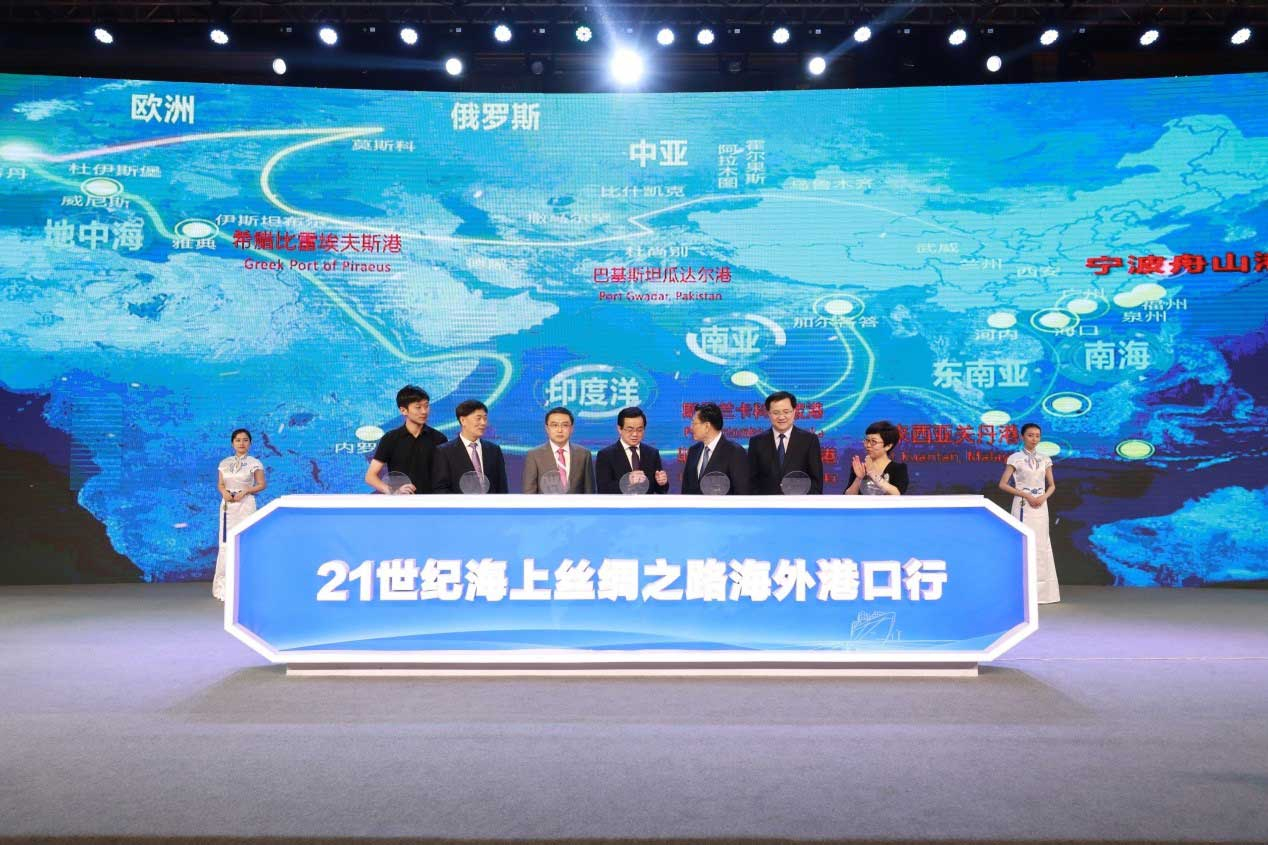
(Photo: Maritime Silk Road Port International Cooperation Forum)
The recently concluded Maritime Silk Road Port International Cooperation Forum in Ningbo City saw shipping industry experts from around the world discuss new ways to boost the efficiency of sea-based trade. Many believe that the way forward is by relying on the Digital Silk Road.
Chris Caplice, executive director of MIT Center for Transportation and Logistics, mentioned several emerging technologies that could bring transformation to port and shipping industries. Autonomous trucks, 3D printing, and block chain technology can make interactions between multiple trading partners more efficient, said Caplice.
With an estimated 80 percent of goods being shipped by sea each year, ports have long been a critical link in the global supply chain. However, industry experts are looking to speed things up by making use of AI technology and automating the large amount of processes that are typically done through manual labor. The hope is that a digital transformation can boost the efficiency of ports around the world.
Ma Shuo, vice president of World Maritime University confirmed the potential of digitalization. “The impact of digitalization is irreversible and long-term. If the port is to innovate, I think that digitalization should be an opportunity rather than a threat.”
Though emerging technologies present great opportunities, industries need to overcome several challenges, such as transformations to the management structure, data protection, and approval from relevant governments. Building the "digital silk road" won't be easy, but experts believe that the benefits outweigh the risks.


